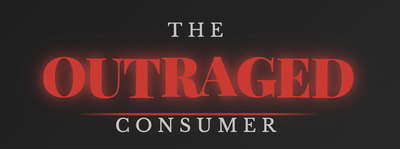Vanishing Justice: How Trump’s CFPB is letting financial wrongdoers off the hook—and leaving Americans empty-handed
CFPB has "abandoned its mission," consumer groups charge
• $120 million in redress already stripped from victims and returned to corporate offenders
• Hundreds of millions more in compensation stuck in limbo or at risk of being canceled
• Watchdog groups warn the Consumer Financial Protection Bureau has “abandoned its mission”
When the Consumer Financial Protection Bureau (CFPB) was created in the wake of the 2008 financial crisis, it was hailed as a transformative force—a powerful new watchdog with a singular mission: to protect everyday Americans from the predatory practices of Wall Street and big finance.
But under the leadership of acting director Russell Vought—appointed by Donald Trump in early 2025—the agency now stands accused of doing just the opposite.
A joint investigation released this week by the Consumer Federation of America (CFA) and the Student Borrower Protection Center (SBPC) reveals that more than $360 million in consumer restitution—money owed to Americans who were harmed by illegal corporate conduct—is either in jeopardy or has already been redirected back to the very companies that caused the harm.
“The CFPB should be protecting Americans in the financial marketplace, not coddling corporate lawbreakers,” said Eric Halperin, senior fellow at CFA.
From guardian to gatekeeper
Since its founding, the CFPB has recovered billions of dollars on behalf of consumers—returning funds through direct restitution and the Civil Penalty Fund, also known as the victims relief fund. These efforts have long served as a pillar of justice for Americans scammed by financial companies ranging from shady payday lenders to mega-banks.
But the CFA-SBPC investigation paints a starkly different picture of today’s CFPB: one where enforcement actions are quietly dropped, restitution is revoked, and transparency has vanished.
At least $120 million in confirmed redress payments that had been negotiated in settlement agreements were recently withdrawn or terminated by the Trump-era CFPB. These settlements, investigators say, had already been finalized—yet the agency went back and explicitly eliminated companies’ obligations to pay consumers.
In one of the most egregious examples, enforcement actions that would have delivered compensation to servicemembers and veterans, student loan borrowers, and auto loan customers were simply abandoned.
“When Americans got ripped off by big banks and other financial companies, they could count on the CFPB to take action—until now,” said Allison Preiss, senior fellow at SBPC. “Under Trump’s CFPB, Wall Street wrongdoers are being richly rewarded at the expense of Americans who should be getting checks in the mail.”
Redress in Purgatory
Beyond the $120 million already lost, hundreds of millions of dollars in additional redress are now hanging in the balance, the report finds.
In 2024 alone, the CFPB ordered companies to pay $550 million to consumers harmed by illegal financial conduct. While some of that money has reportedly reached victims, watchdogs warn that much of it remains at risk—caught in a bureaucratic no-man’s-land.
Among the cases flagged by investigators:
CashApp (Block Inc.): Up to $120 million in refunds has not been distributed, with no public update from the CFPB.
Navient: $100 million earmarked for student loan borrowers appears to be stuck, with no explanation from the agency.
American Honda Finance: More than $10 million owed to auto loan holders remains undelivered.
The concern is not just delay, but deliberate abandonment—especially in light of the CFPB’s growing pattern of terminating settled enforcement actions.
Transparency—Terminated
Since 2011, the CFPB has published quarterly public reports detailing enforcement actions, penalties collected, and how funds were allocated to harmed consumers. These reports are essential for consumer advocates and journalists to track the agency’s effectiveness and ensure accountability.
Yet under the new leadership, no such reports have been published since January 5, 2025.
The silence represents more than a break in tradition—it’s a sharp deviation from the agency’s foundational values of openness and accountability. It has also fueled speculation that the CFPB may be attempting to obscure the full extent of the redress reversals.
“This isn’t just about policy differences,” Halperin noted. “It’s about basic accountability and honoring the promises made to Americans who’ve already been harmed.”
Who’s paying the price?
At the heart of this controversy are the people most often overlooked in financial scandals: working families, veterans, students, and low-income borrowers. These are the individuals who were misled, overcharged, or outright defrauded—many of whom only discovered they were eligible for redress when the CFPB stepped in to hold companies accountable.
Now, with the agency itself backing away from enforcement, those victims are being left behind.
For military service members who were overcharged on auto loans, for student borrowers misled by their loan servicers, and for millions of digital banking customers promised refunds after illegal practices—there is no clear path forward. The CFPB has provided no timeline, no public explanation, and no detailed plan to ensure these consumers will ever receive the compensation they’re owed.
What comes next?
The CFA and SBPC are calling on lawmakers, regulators, and the public to demand answers—and to push for a return to the CFPB’s original mission.
With billions of dollars potentially on the line and growing pressure on the agency to clarify its enforcement priorities, the fate of the CFPB’s consumer protection legacy may now hinge on whether it can reestablish public trust.
“We need a CFPB that serves the people,” said Preiss. “Not one that shields powerful corporations from consequences.”
Editor’s Note: Consumers who believe they may be affected by CFPB enforcement rollbacks can contact consumer protection organizations or check the CFPB’s official case listings. For now, however, that list appears to be frozen in time
.



